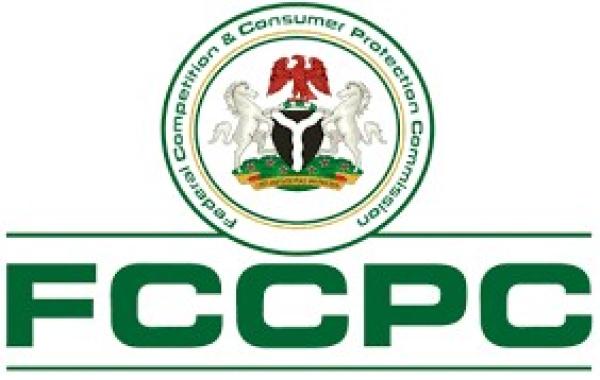
The Federal Competition and Consumer Protection Commission has commended the Central Bank of Nigeria’s proposed directive, which mandates banks to refund customers for failed Automated Teller Machine transactions within 48 hours.
In a statement on Monday signed by Ondaje Ijagwu ,Director of Corporate Affairs, the Commission described the CBN’s Draft Guidelines on the Operations of Automated Teller Machines in Nigeria as a timely and long-awaited intervention that aligns with ongoing efforts to protect consumers in the financial services sector.
The draft guideline, released last week, follows the FCCPC’s Consumer Complaints Data Report published in September 2025, which revealed that the banking and fintech industries accounted for the largest volume of consumer complaints nationwide.
The statement read, “The Federal Competition and Consumer Protection Commission welcomes the Central Bank of Nigeria’s draft guidelines requiring all banks to refund customers for failed Automated Teller Machine transactions within 48 hours.
“The exposure of the CBN’s Draft Guidelines on the Operations of Automated Teller Machines in Nigeria follows the FCCPC’s Consumer Complaints Data Report published in September 2025.
According to the statement, more than 3,000 complaints were recorded against banks between March and August 2025, with the Commission facilitating the recovery of over N10bn for consumers across 30 sectors.
The findings highlighted recurring issues such as failed transactions, unauthorised deductions, and prolonged refund delays, the very challenges the new CBN policy seeks to resolve.
“The report, which covered the period from March to August 2025, showed that the banking and fintech sectors accounted for the highest number of complaints nationwide, over 3,000 cases in banking alone, with about ₦10 billion recovered for customers across 30 sectors. The findings highlighted recurring issues such as failed transactions, unauthorised deductions, and delayed refunds, all of which the CBN draft guidelines seek to address,” the statement added.
The Executive Vice Chairman and Chief Executive Officer of the FCCPC, Tunji Bello, hailed the CBN’s move as “a timely and long-awaited correction to a persistent consumer challenge.”
“It is consistent with what the FCCPC has been advocating, given the volume of complaints we receive about failed transactions. We commend the CBN for this decisive step, which will ease the burden on consumers and rebuild trust in financial services,” Bello stated.
He also said that, the initiative demonstrates improved coordination among regulatory agencies committed to consumer welfare, even at the draft stage.
The FCCPC further outlined that, the CBN’s proposed directive aligns with several provisions of the Federal Competition and Consumer Protection Act 2018, particularly Sections 17(g), (h), (l), (s), and (t).
These sections empower the Commission to eliminate unfair practices, promote fair dealings, ensure the resolution of consumer complaints, safeguard consumer interests, and maintain the safety and reliability of goods and services offered in Nigeria.
The Commission advised the prompt adoption and implementation of the CBN’s proposal, stressing that early enforcement would provide immediate relief for consumers still battling unresolved electronic transaction reversals.
“Timely adoption would reinforce accountability within the banking sector and demonstrate a shared regulatory commitment to fairness, efficiency, and consumer confidence,” the statement read.
To ensure compliance, the FCCPC stated that it would collaborate with the CBN to establish a monitoring framework that tracks banks’ adherence to the 48-hour refund rule and ensures prompt redress when violations occur.
The Commission maintained that closer collaboration among financial regulators would promote faster dispute resolution, prevent recurrence of consumer grievances, and bolster confidence in Nigeria’s growing digital economy.
Under the proposed guidelines, customers with unresolved ATM or electronic transaction issues must first lodge their complaints with their banks or the CBN.
If the issue remains unresolved, they can escalate the matter to the FCCPC via its Complaints Portal (complaints.fccpc.gov.ng), email ([contact@fccpc.gov.ng](mailto:contact@fccpc.gov.ng)), or hotline (0805 600 2020).
Nigeria’s electronic payments landscape has grown rapidly in recent years, with 200 million cardholders and rising reliance on digital banking, but network failures, poor infrastructure, and delayed reversals have continued to undermine confidence.
The fresh guidelines, coming eight months after a revision of ATM fees, are expected to streamline service delivery, enhance transaction security, and hold banks accountable. Stakeholders are invited to submit feedback ahead of the final policy adoption, which could take effect before the end of the year.






















